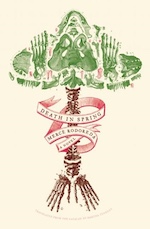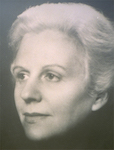 The Book Beat reading group selection for April is Death in Spring by Mercè Rodoreda. We will meet virtually online via Zoom or in store on Wednesday, April 30th at 7:00 p.m.
The Book Beat reading group selection for April is Death in Spring by Mercè Rodoreda. We will meet virtually online via Zoom or in store on Wednesday, April 30th at 7:00 p.m.
The Zoom link will be sent on the afternoon of the meeting to anyone interested in attending.
The Book Beat reading group features international works in translation and more, and discussions are free and open to the public.
Please call (248) 968-1190 or email bookbeatorders@gmail.com for more information.
Books are in stock now and discounted 15%.
Considered by many to be the grand achievement of her later period, Death in Spring is one of Mercè Rodoreda’s most complex and beautifully constructed works. The novel tells the story of the bizarre and destructive customs of a nameless town—burying the dead in trees after filling their mouths with cement to prevent their soul from escaping, or sending a man to swim in the river that courses underneath the town to discover if they will be washed away by a flood—through the eyes of a fourteen-year-old boy who must come to terms with the rhyme and reason of this ritual violence, and with his wild, child-like, and teenage stepmother, who becomes his playmate. It is through these rituals, and the developing relationships between the boy and the townspeople, that Rodoreda portrays a fully-articulated, though quite disturbing, society.
The horrific rituals, however, stand in stark contrast to the novel’s stunningly poetic language and lush descriptions. Written over a period of twenty years–after Rodoreda was forced into exile following the Spanish Civil War—Death in Spring is musical and rhythmic, and truly the work of a writer at the height of her powers.
“The bleakness of Rodoreda’s outlook stands in dramatic contrast to the gorgeous lyricism of her prose. In Martha Tennent’s translation, her sentences are richly luxuriant, embodying the fecund beauty of spring in bloom while also admitting the imminence of death and decay. Throughout Death in Spring, horror often creeps in right on beauty’s heels.”—Ryan Michael Williams, Rain Taxi
“The novel is suspenseful, pushing the reader through the images, memories, and voices that flow within the protagonist’s often confused mind as he develops into manhood. Just as the unnamed protagonist must navigate a world of contradictions, the novel reflects Rodoreda’s own political, social, and literary exile while speaking of a tyranny that feels almost uncanny in its incantation.”—Katherine Elaine Sanders, Bomb Magazine
“I grasped something of Rodoreda’s aims in writing such an uncompromisingly brutal book: The story requires surrender in the same way the tragedies of life do — we must breathe them in to move through them. When you read this book, read it for its beauty, for the way it will surprise and subvert your desires, and as a testament to the human spirit in the face of brutality and willful inhumanity.”—Jesmyn Ward, NPR
 Mercè Rodereda (b. 1908) was born in Barcelona at a time when Catalonia was autonomous and its citizens were allowed to speak, write, and study their own language. She published five novels between 1932 and 1937, and then fled into exile at the end of the Spanish Civil War, when the Catalan culture was brutally suppressed. She did not publish again until 1959. Afterwards, she regularly produced novels and collections of short stories and became a fixture on Catalan best-seller lists. When Franco died, most restrictions on the use of Catalan were lifted, and Rodereda returned to Barcelona, where she died of cancer in 1983.
Mercè Rodereda (b. 1908) was born in Barcelona at a time when Catalonia was autonomous and its citizens were allowed to speak, write, and study their own language. She published five novels between 1932 and 1937, and then fled into exile at the end of the Spanish Civil War, when the Catalan culture was brutally suppressed. She did not publish again until 1959. Afterwards, she regularly produced novels and collections of short stories and became a fixture on Catalan best-seller lists. When Franco died, most restrictions on the use of Catalan were lifted, and Rodereda returned to Barcelona, where she died of cancer in 1983.
